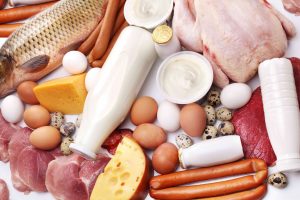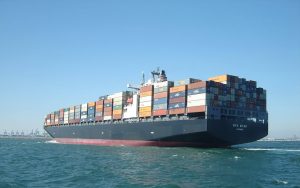Amivet attended the AHDB meat export conference in Warwick, where there was a very positive outlook on the future of meat exports and some very informative presentations were given.
George Eustice MP, minister of state, confirmed that the Government are planning on leaving the single market, but stressed that they were keen to support the agrifood sector in their efforts to export worldwide and secure potential new trade deals. Beef exports to China, Japan and USA were among the top priorities. Recent successes included lamb to Kuwait, pork to Oman and beef to Canada.
JP Garnier, ADHB head of exports, gave an update across the sector and made some important observations
- There is huge potential in Asia with a rising middle class population
- Digital technology, apps, smartphone use is becoming more important
- Export health certificates (EHC) may be required for trade with the EU and it is imperative that electronic certs (e-certs) are produced as a priority, along with updating current EHC
- Tariffs remain a huge potential barrier and need clarifying as soon as possible
- ADHB hope to increase meat exports by 20% over the next 5 years – with a large marketing push to countries such as Canada, China, Australia, New Zealand, USA, Japan and parts of Africa
- Trade to the EU is likely to fall, whereas trade to the rest of the world will increase
- British meat has an excellent reputation and there are markets for quality meat products with a premium price
- The sector needs to ensure it has the capacity to produce enough to feed the demand
Phil Bicknell gave some thoughts on market intelligence.The WTO, having 164 members, was set up with the aims of decreasing tariffs, preventing bans and restrictions, and limiting Government subsidies that might distort trade, as detailed in the red/amber/green box system. One important point made was that animal welfare cannot be used a barrier to trade.
Alan Matthews from Dublin then spoke about the implications for trade. He felt we would almost certainly be trading on terms worse than we do currently. He highlighted current WTO tariffs on meat vary from 30-80%. He noted that given current equal standards, there was scope for mutual recognition agreements or ‘grandfather rights’ for trade. There was discussion of the merits of staying in the EEA/EFTA/customs union and also talk of how the EU quota system could be divided up.
Tim Reardon from the UK chamber of shipping made some important observations. Dover, the UK’s busiest ferry port, does not have the space or capacity to be able to carry out customs checks and there is no border inspection post facility there. He contrasted this with the container port system as used at Felixstowe and London Gateway. This may lead to long queues at some ports unless this issue is resolved.
At Amivet, we will continue to keep up to date with the latest news and events and will ensure that we keep you up to date and to try and ensure that any changes are as smooth as possible.
Where do we see things going in the future?
- Move to electronic export health certificates
- Decreased trade with Europe
- Potential to need EHC for trade with Europe
- Increased trade with rest of the world
- Strong British brand based on premium standards and welfare
- Short term confusion and uncertainty
For further details on the conference, see here.
Witten by Andrew Iveson on and tagged in brexit, Export, Meat,


